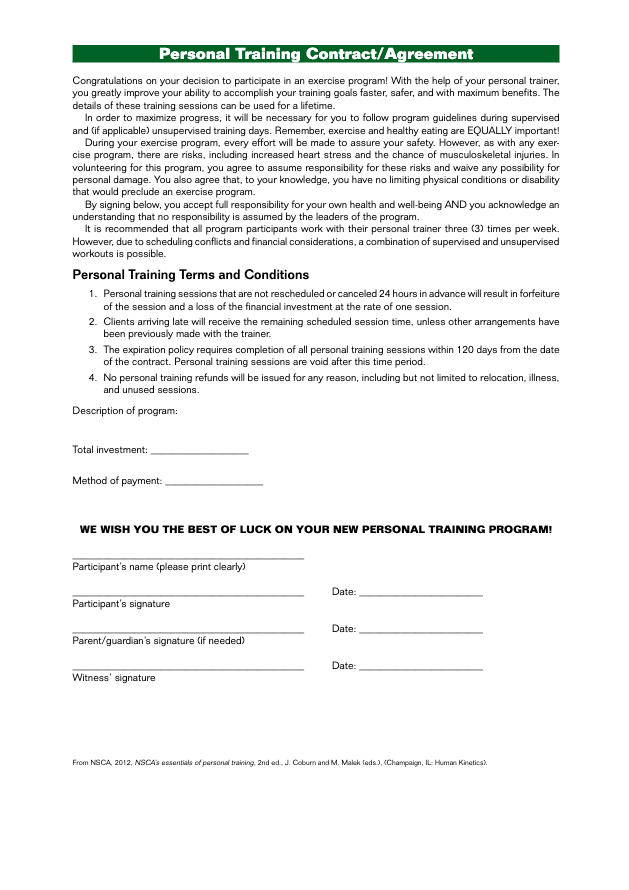When you have any verbal agreement for any course of action, it can easily be misremembered or misunderstood. Thus, it may lead to a lot of back and forth. Either of the people suffers losses, or both lose reputation and relationship. At worst, having a verbal agreement may take up potential lawsuits, frequent client cancellations, or non-payment. Hence, to protect the dignity and time of every individual involved.
Hence, it is important to have clear and strong personal training. As a result, you get a non-negotiable guideline to refer to. All in all, when the rules and responsibilities are set, you know what the course would involve.
What Is A Personal Training Agreement?
A personal training contract agreement is a legal agreement between the client and the personal trainer. It lists all the limitations and obligations any of the parties can have during the course. Moreover, right from the outset, it sets clear expectations and builds a strong relationship without worrying about any unforeseen circumstances.
The personal training contract not only protects the personal trainer but the client as well. Without a formal contract, the clients will be unsure of what to expect with missed appointments, sessions, and payments. The more the client knows what to expect, the easier it becomes to maintain transparency.
What Does a Personal Training Contract Template Include
Let us look at a few important things that should include in a personal training contract template.
Rates and Packages: Each personal trainer works according to the client’s requirements. So, the rates and packages of each requirement may differ. While one personal trainer may charge monthly, another trainer might ask for an hourly payment. Spell out the details correctly in the contract.
Payment Requirements: Mention when and how the payment has to be made. While a few may ask to transfer after every week’s session electronically, the other can be flexible in any mode of payment after the engagement ends.
Scheduling and Cancelations: Put out how to schedule the appointments. Is there any automatic scheduling software that you have to make use of? And also decide on the number of appointments scheduled per week. Flesh out the session cancellation policy too.
Contract termination: Always have the termination policies in place. Consider the different factors that may lead to the cancellation of the contract. For example, this may include continual missing appointments or non-payment.
Conclusion
Personal training can be a rewarding and exciting journey. However, when somebody pays you for the task, a contract comes in handy. A well-written personal training contract accounts for many minor points. It holds both accountable if the rules are not followed. Moreover, it also protects both of you from any future legal complications.
